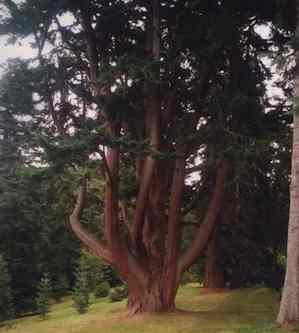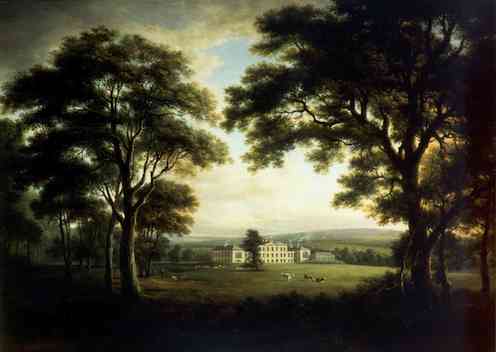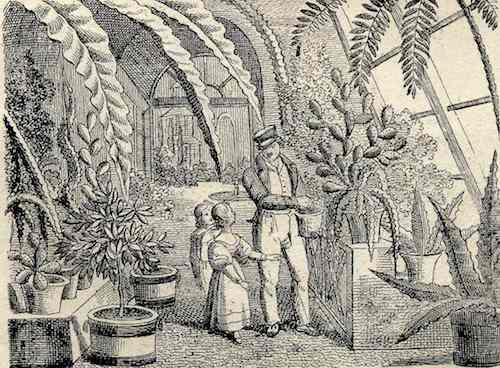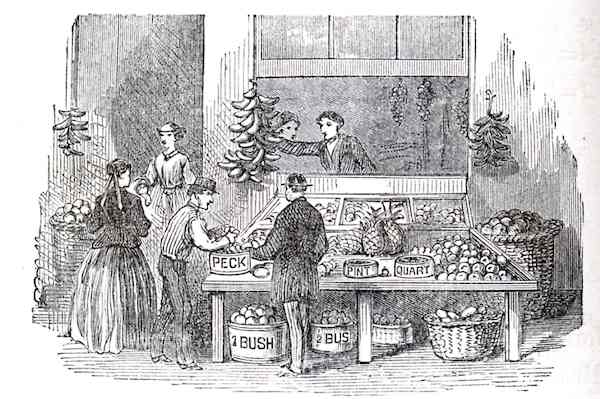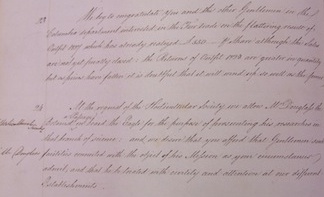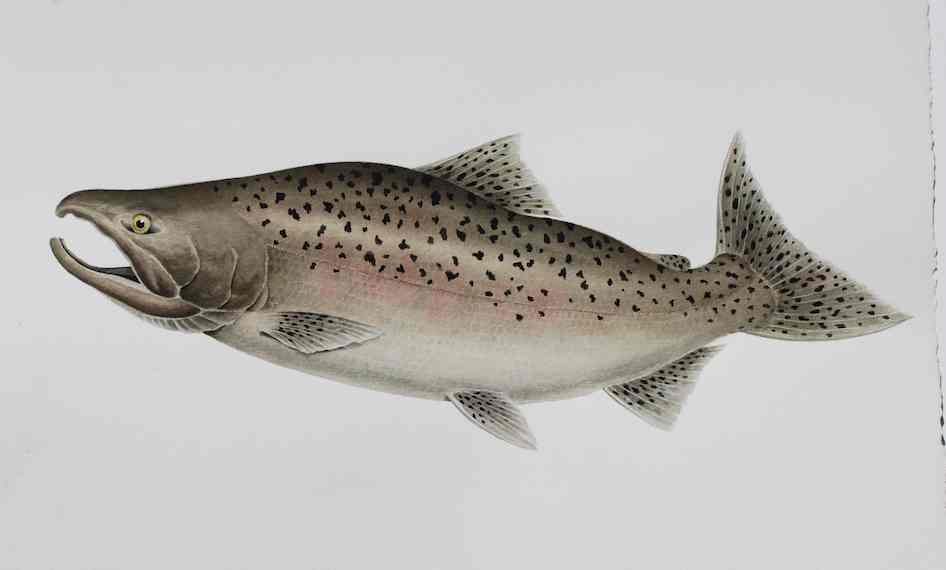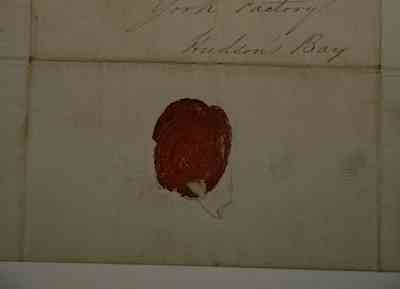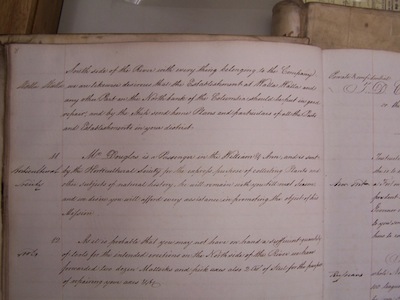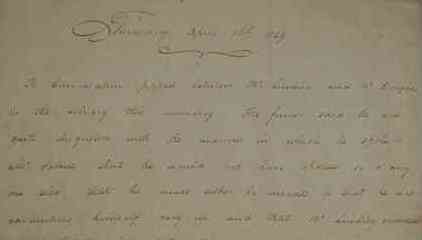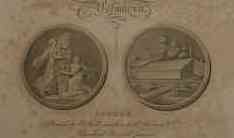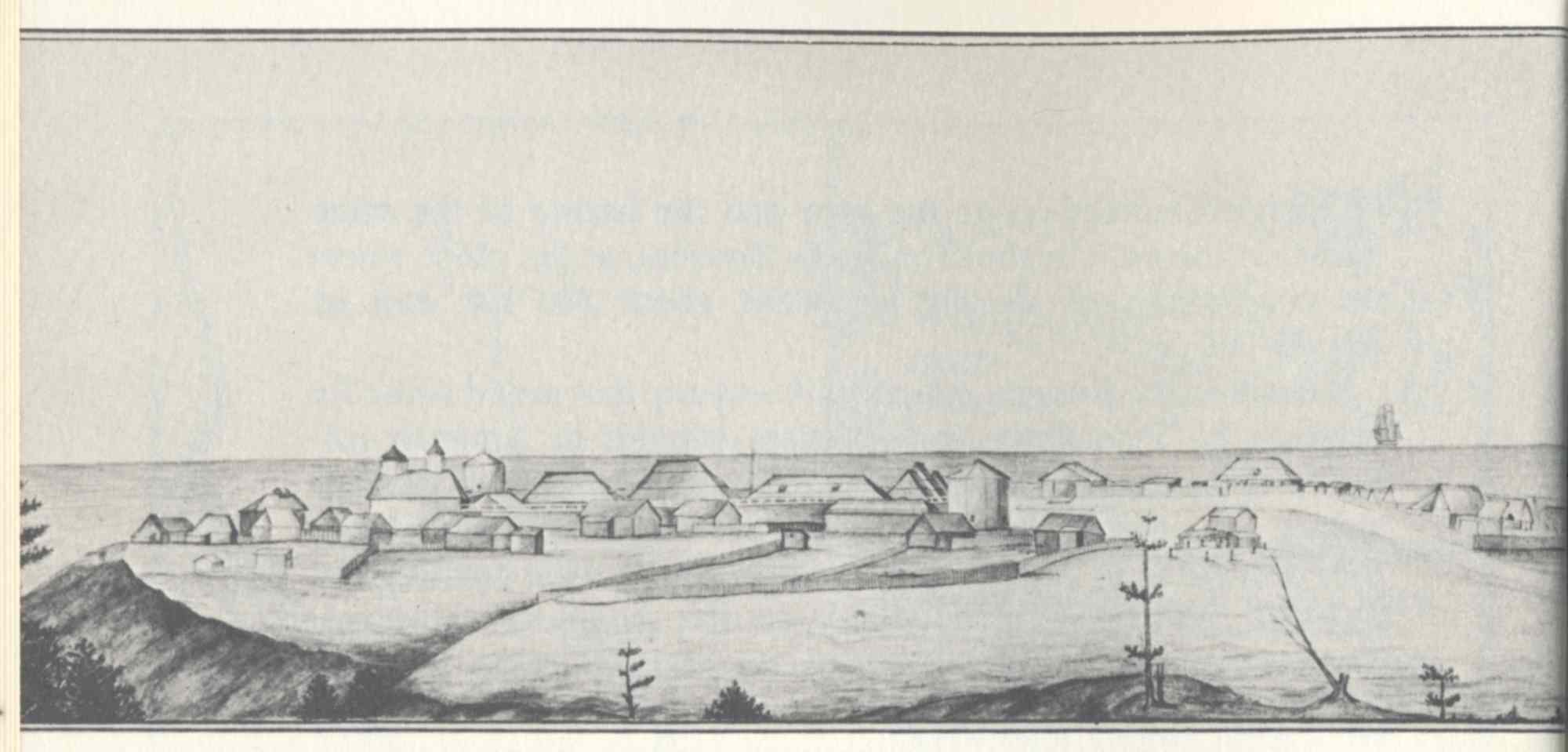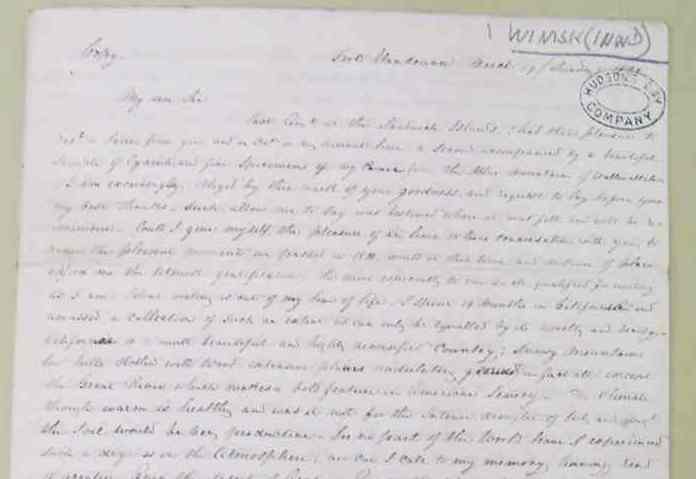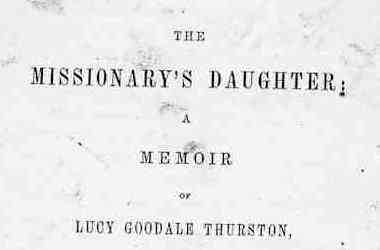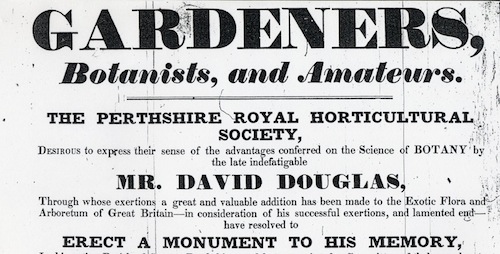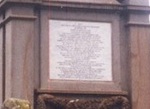Timeline
Key Events In The Life Of David Douglas
1799
Born June 25 at Scone, Perthshire, the son of a stonemason.
1802
Starts at the village school. Subsequently attends Kinnoull School near Perth where he is a less than willing pupil.
1810
Leaves school to be apprenticed as a gardener at Scone Palace. Pursues his botanical interests through walking, climbing and evening study.
1818
Takes up position as under gardener at Valleyfield, Fife, home of Sir Robert Preston.
1820
Appointed to a post at the Botanic Garden, Glasgow, and becomes pupil and friend of Dr William Hooker, Professor of Botany. Attends lectures and botanizes in the Highlands.
1823
On Hooker's recommendation, accepted by the Horticultural Society as a botanical collector.
June: Departs on first botanizing expedition, to northeastern United States and Canada to collect specimens of fruit trees.
1824
January 9: Returns from successful first expedition.
July 25: Departs for the Pacific Northwest of America.
1825
April 7: Arrives at the mouth of the Columbia River to begin serious botanizing along the river and its tributaries. Over-winters at Hudson's Bay Company's Fort Vancouver.
1826
End of March: Resumes botanizing, travelling to Grand Rapids, Walla Walla, Kettle Falls, and Spokane and the Upper Columbia River.
September: Travels south up the Willamette and Umpqua Rivers in Oregon in search of the sugar pine.
October 26: Finds the sugar pine. Over-winters at Fort Vancouver.
1827
March 20: Leaves Fort Vancouver to cross continent to Hudson Bay via the Athabasca Pass. En route climbs peaks in the northern Rockies (the first person known to do so) and meets Thomas Drummond, fellow Scot and plant-collector.
August 28: Arrives at York Factory on Hudson Bay and sails for London.
October 11: Arrives in London and is welcomed as a celebrity by the Horticultural Society. Awarded fellowships of the Geological, Linnean and Zoological Societies.
1828
Remains in London, becoming frustrated with the Horticultural Society, but tending specimens from his own collections in the Society's gardens.
1829
October 31: Leaves England to return to the Pacific North West, travelling via Hawaii.
1830
June 3: Arrives at the Columbia River and resumes botanizing, sending back seeds of the noble and grand firs.
December: Travels to California. Douglas spent 30 months in California. Did he travel north of present-day San Francisco to the Russian settlement at Ft. Ross? Without the journal, we'll never know for sure. Visit California Fort Ross State Historical Park
1831
Botanizes around Monterey and tours Franciscan missions south to Santa Barbara and north to San Francisco. Visits the coast redwood forests. Do archival records exist of David Douglas staying at the missions? Contact us if you have any information.
1832
August: Leaves California and sails to Hawaii. Botanizes and makes astronomical observations.
September 9: Resigns from Horticultural Society on hearing of Joseph Sabine's resignation as Secretary.
October 14: Returns to the Columbia River.
1833
March: Journeys north to Fort St James on Stuart Lake, with the intention of travelling on to Alaska and Siberia.
June 13: Canoe wrecked at Fort George Canyon on the Fraser River with loss of specimens and diary.
August: Returns to Fort Vancouver.
October: Departs for Hawaii via California.
1834
January 2: Arrives on Hawaii Island. Climbs to the summits of Mauna Kea, Kilauea, and Mauna Loa volcanoes.
July 12: Killed on the slopes of Mauna Kea after falling into a bull pit.
August 4: Buried in Honolulu.
1835
February: News of Douglas's death reaches London.
1836
William Hooker publishes his 'Brief Memoir' of Douglas.
1841
Memorial to Douglas erected in the grounds of the Old Parish Church, Scone.
1855
Memorial tombstone erected on Douglas grave at Kawaiahao Church, Honolulu.
1914
Douglas's journal published by the Royal Horticultural Society.

